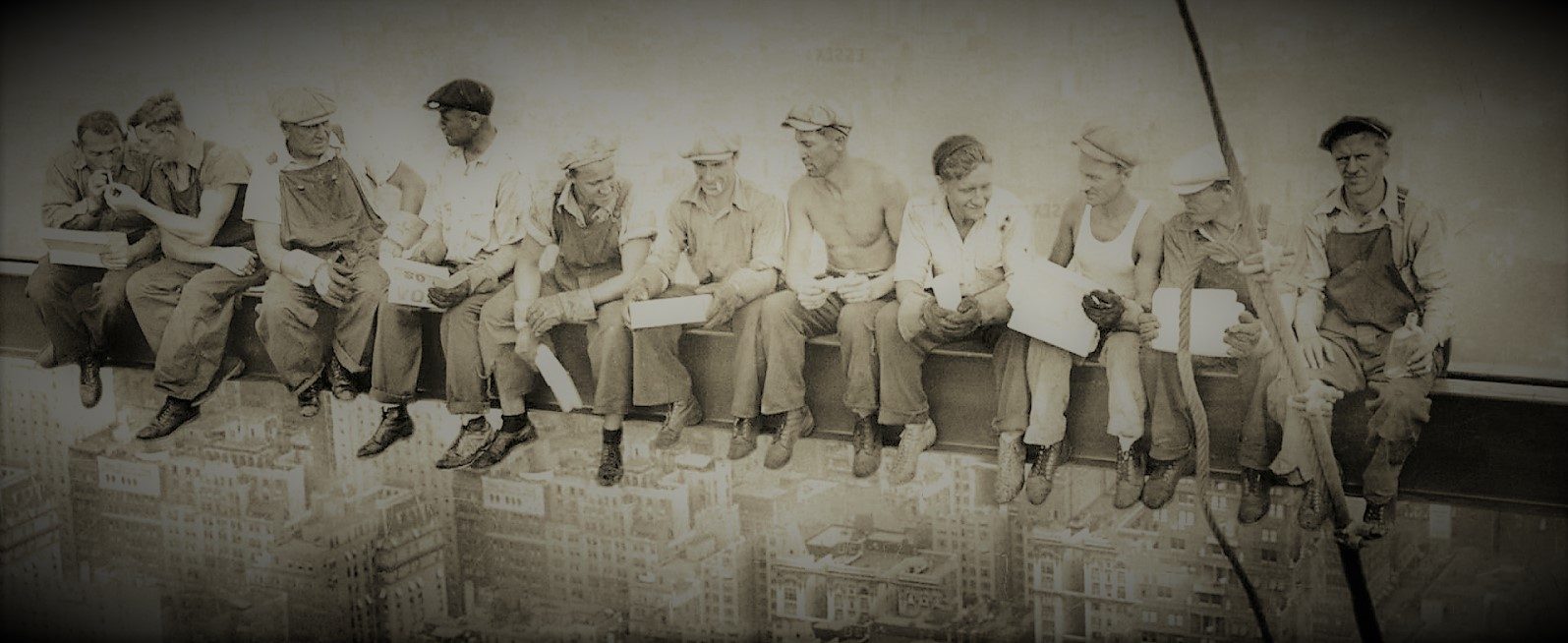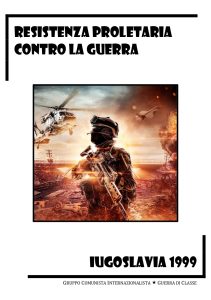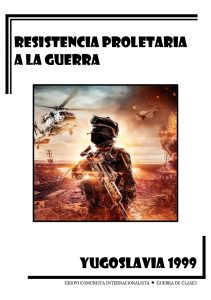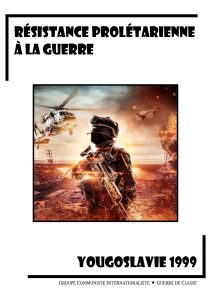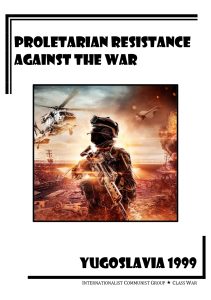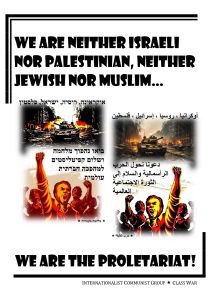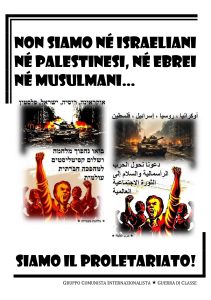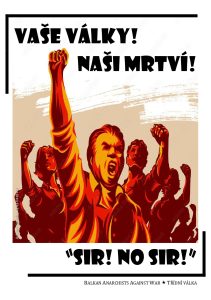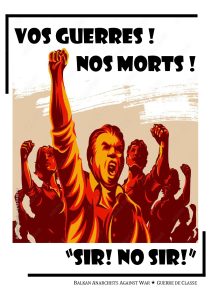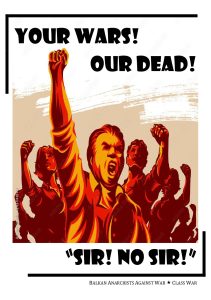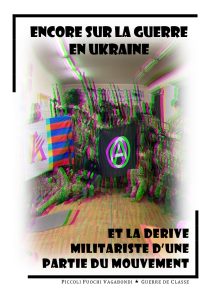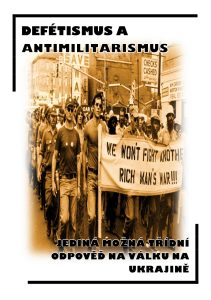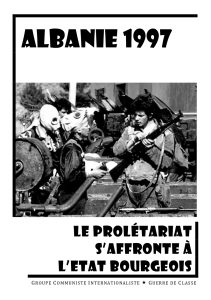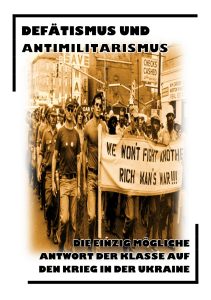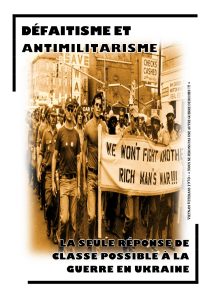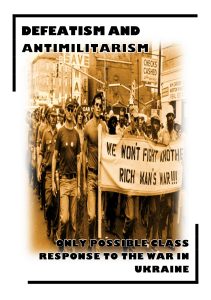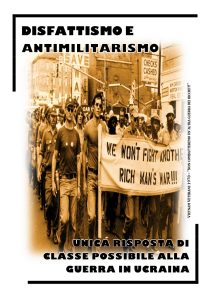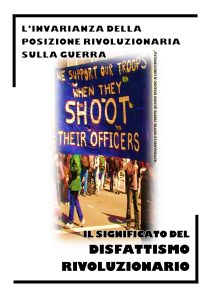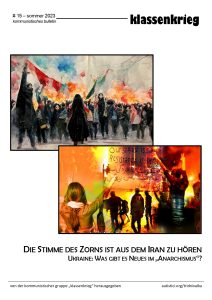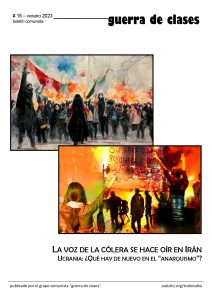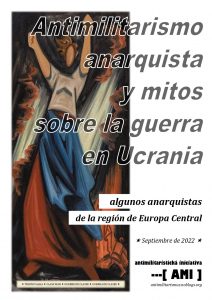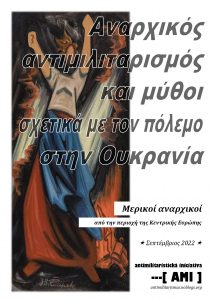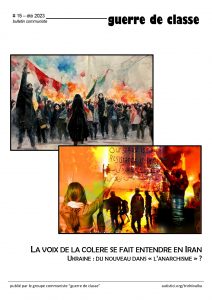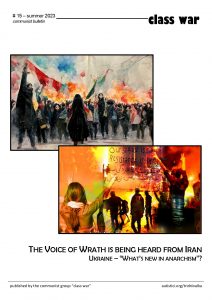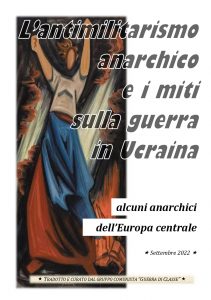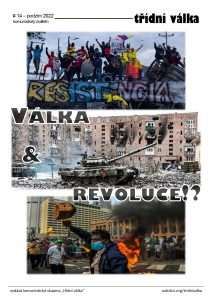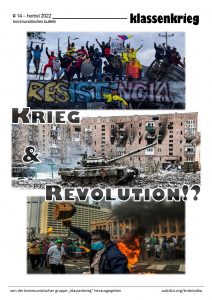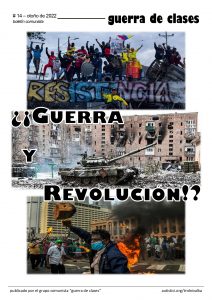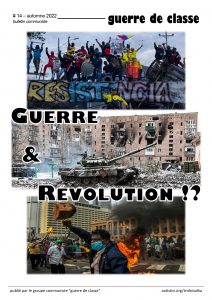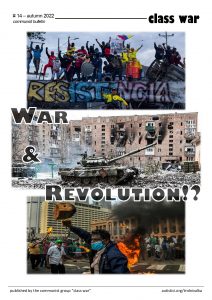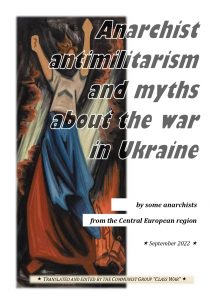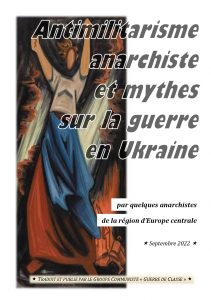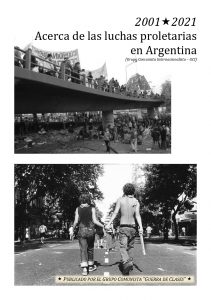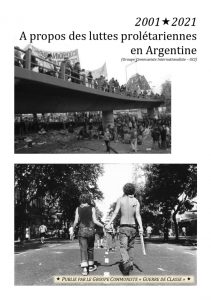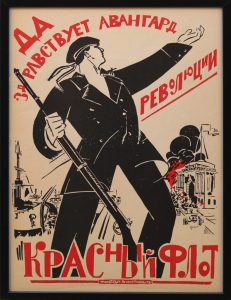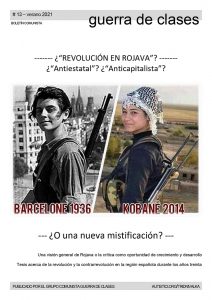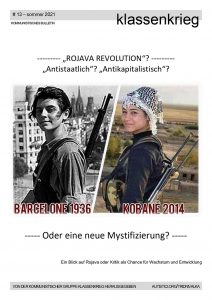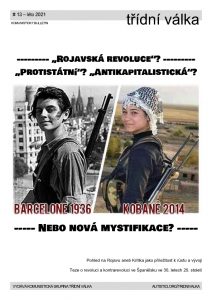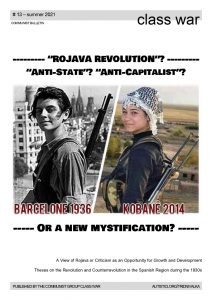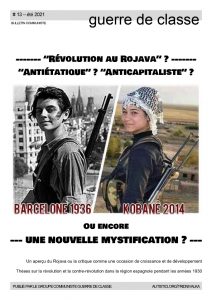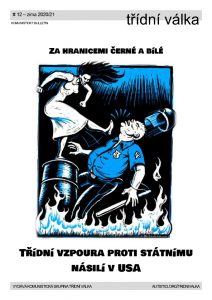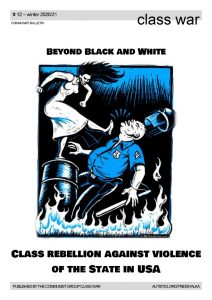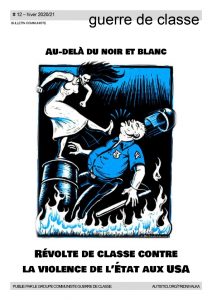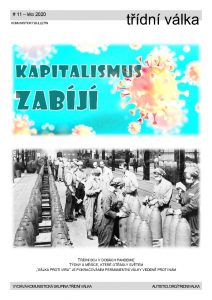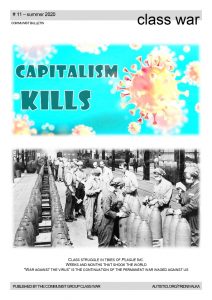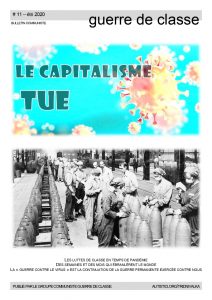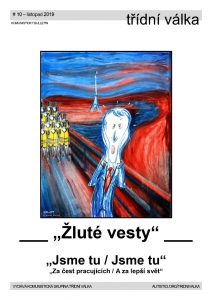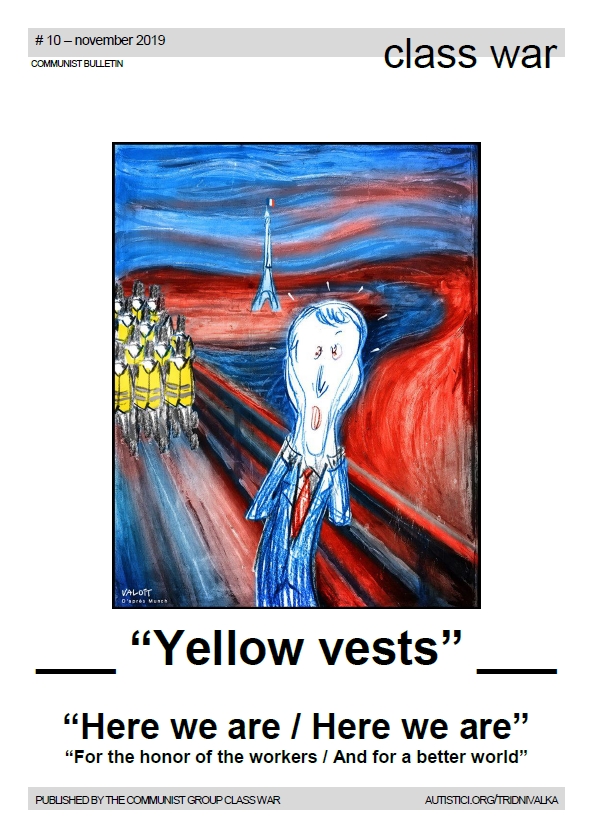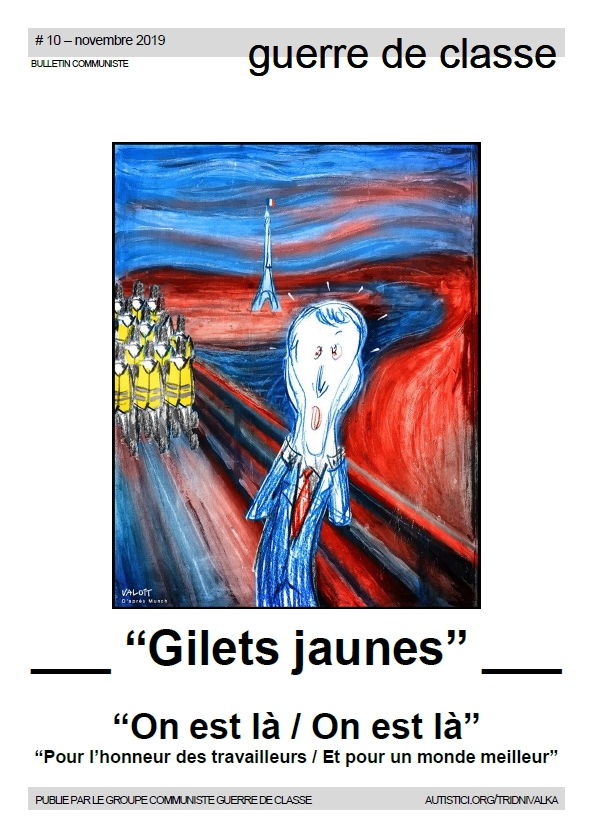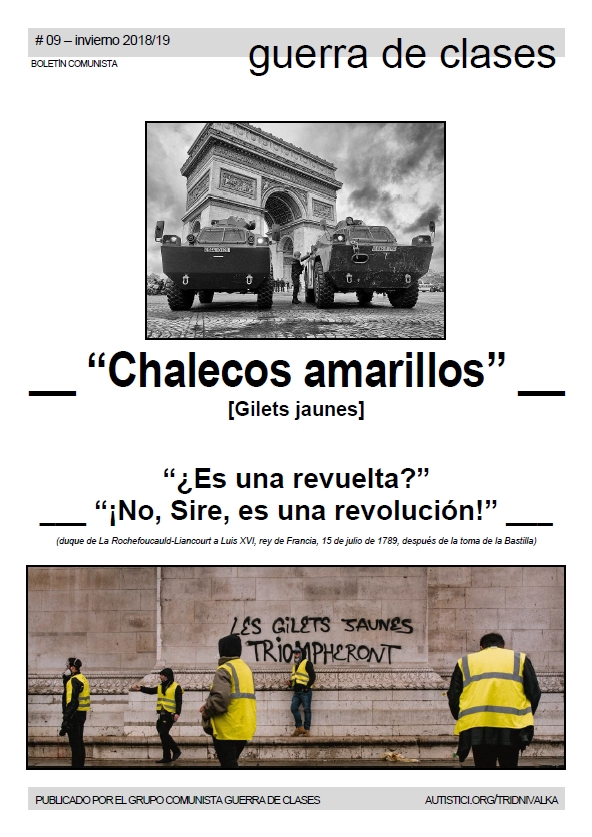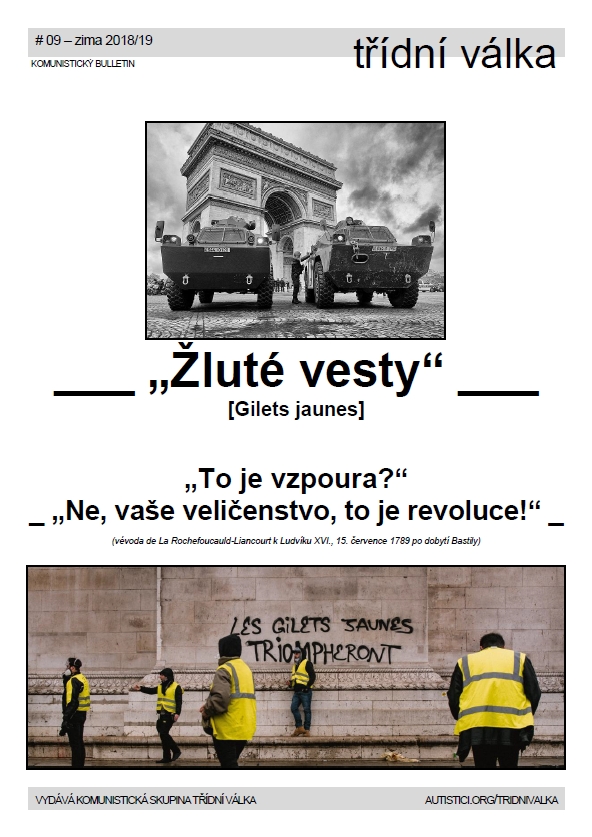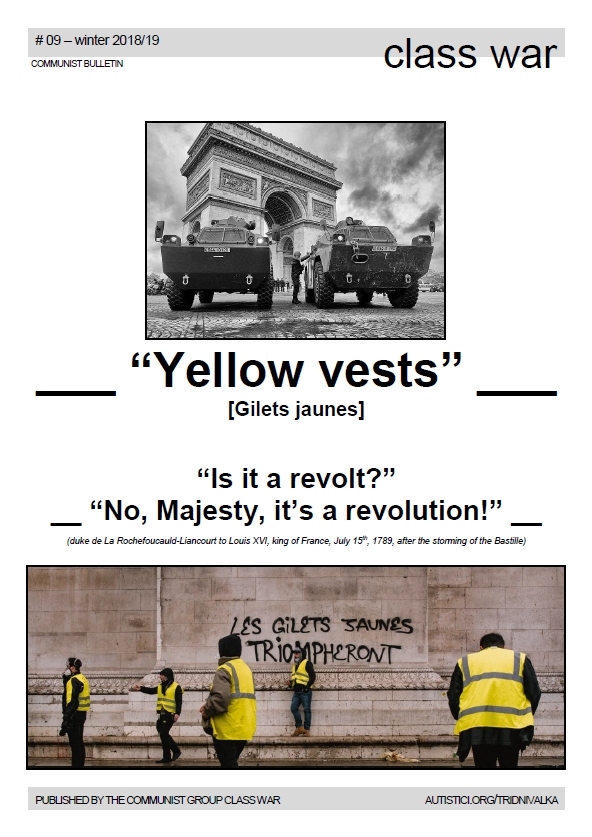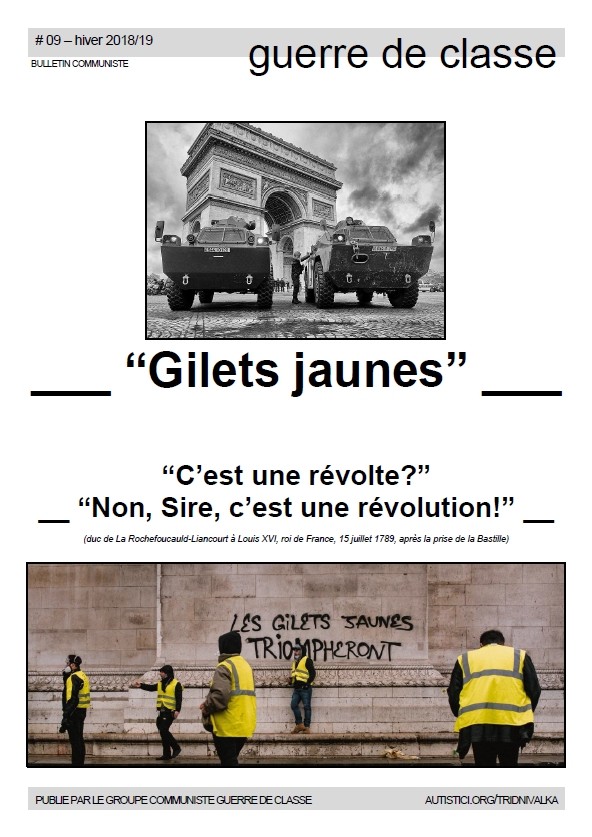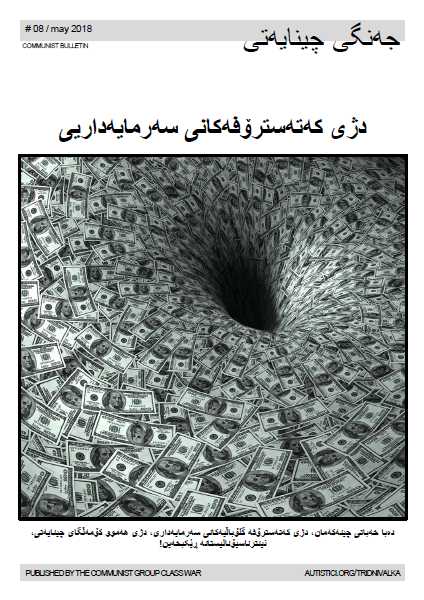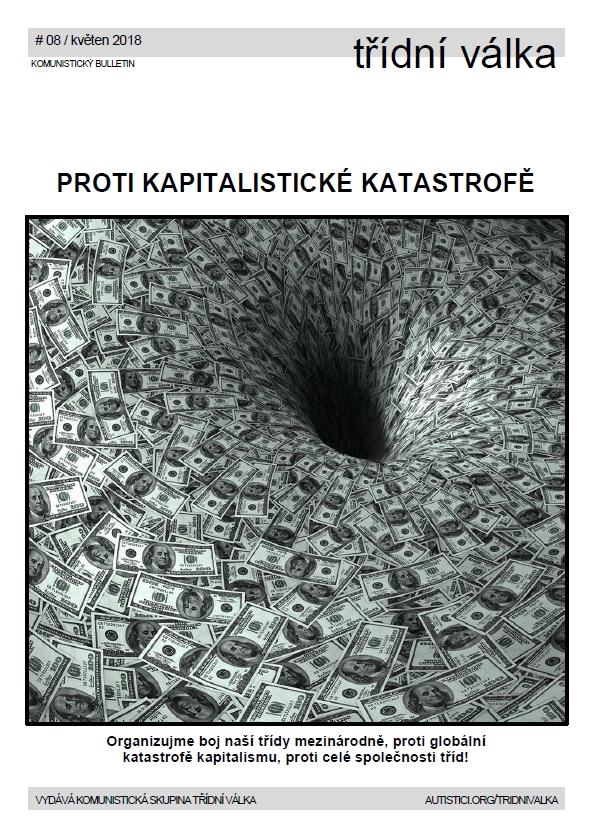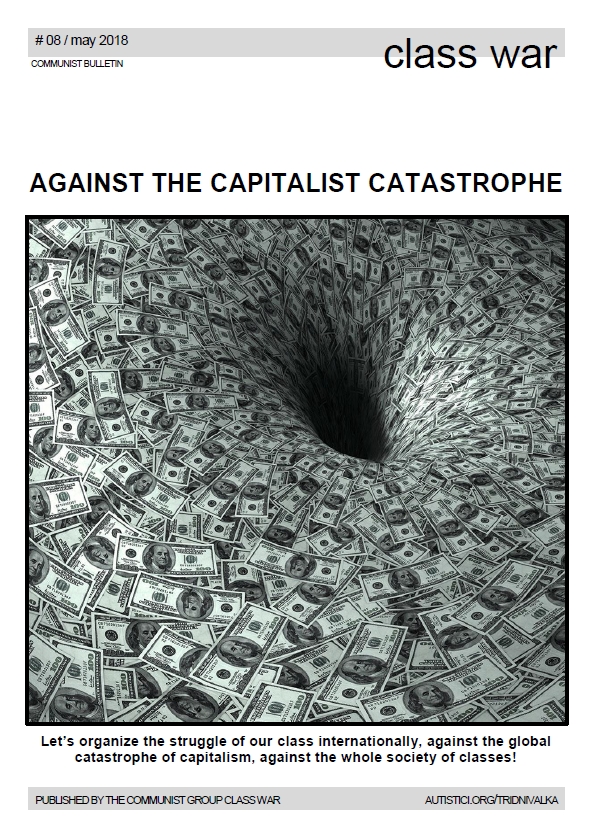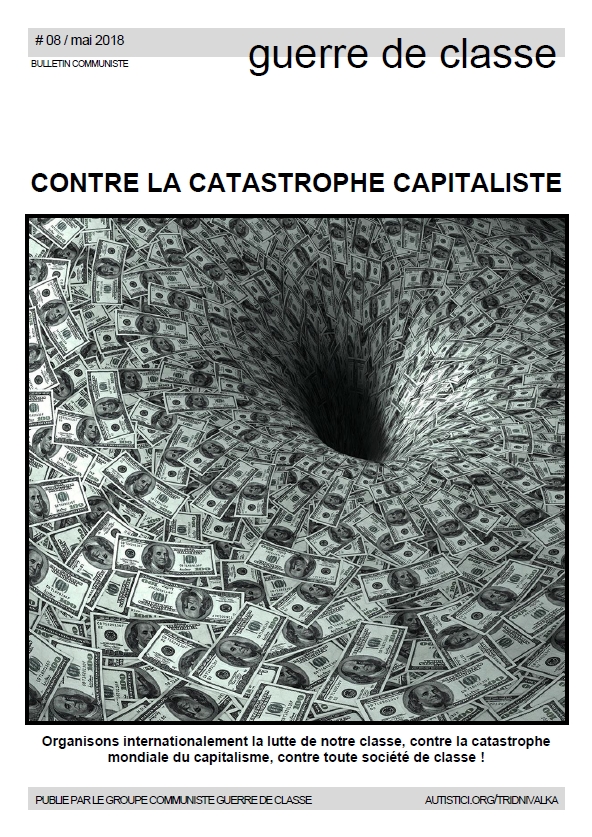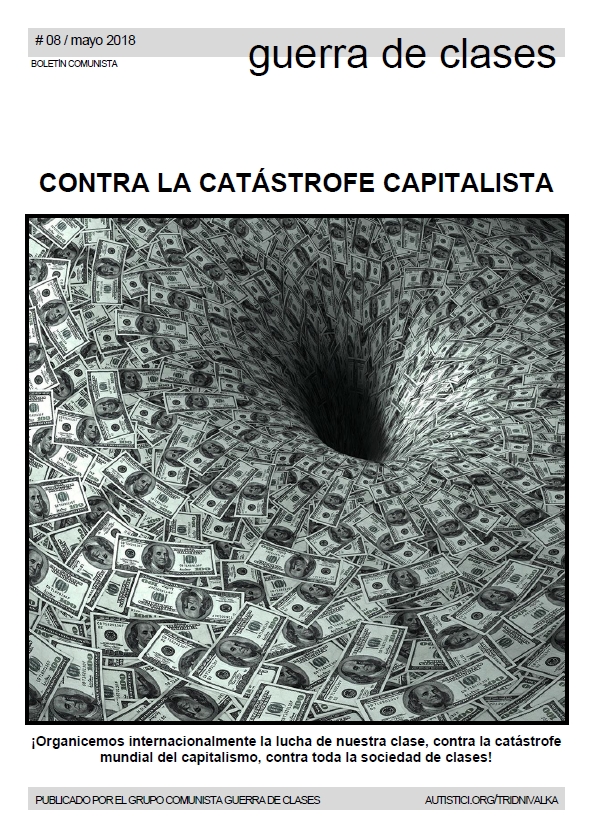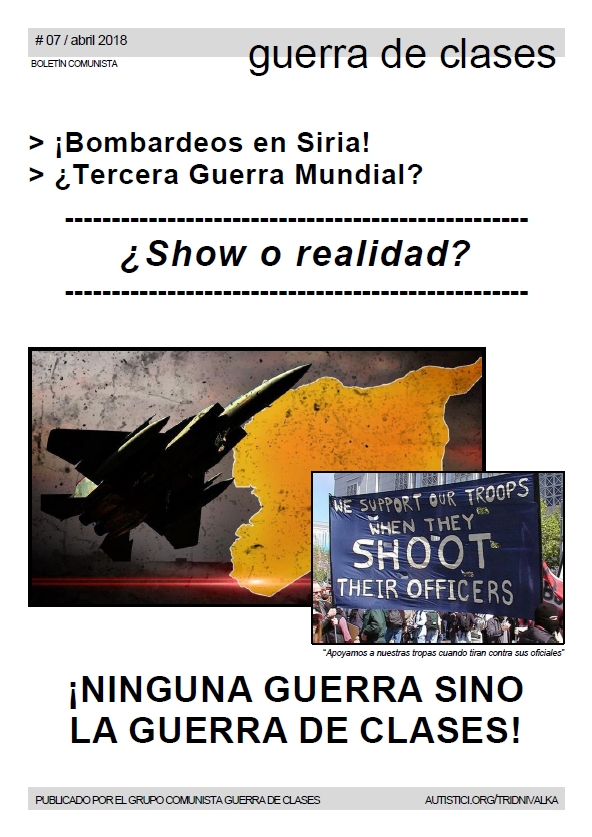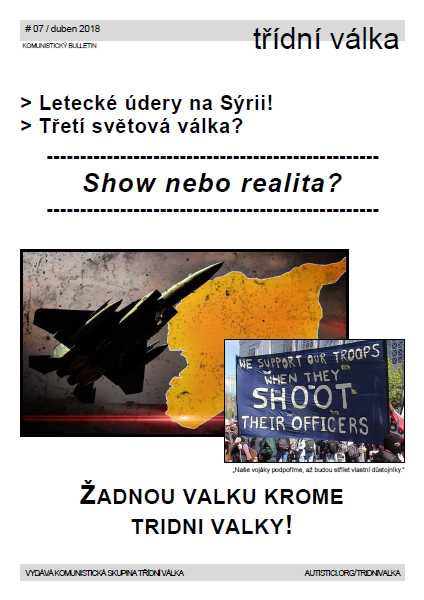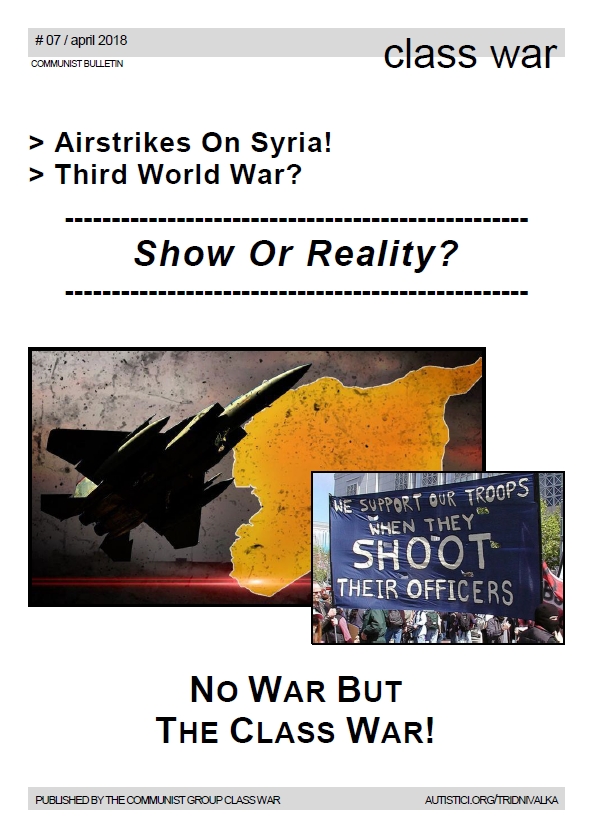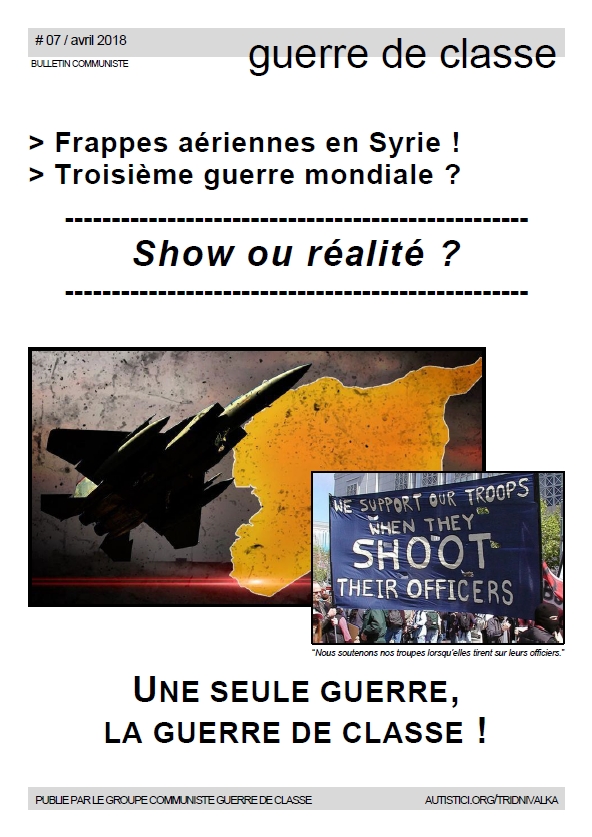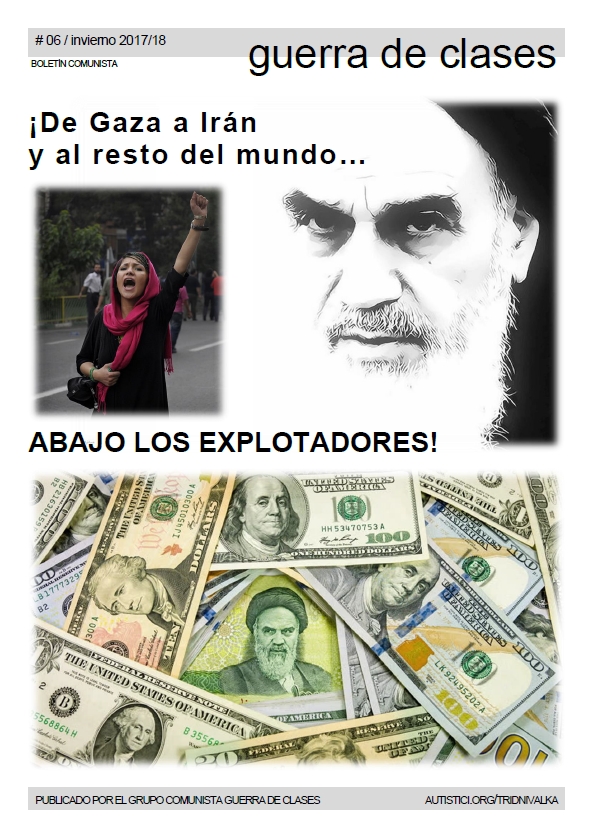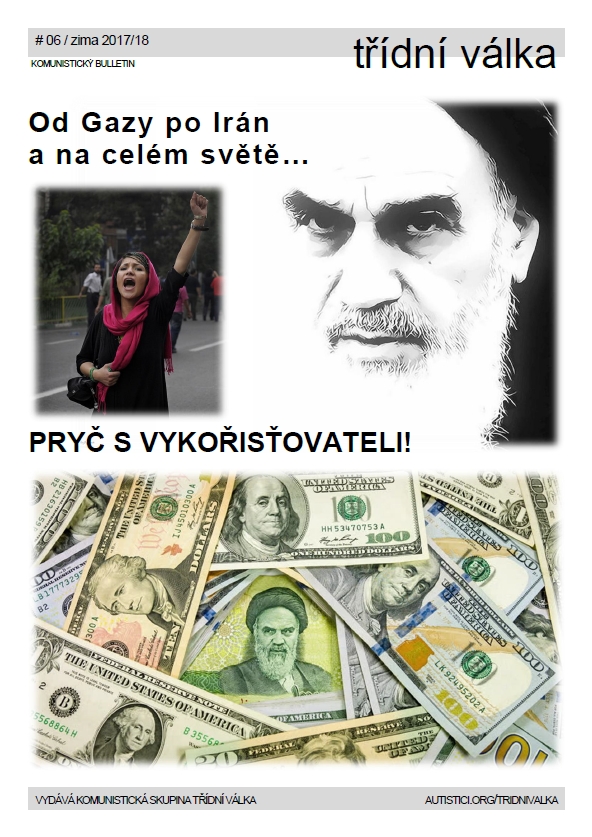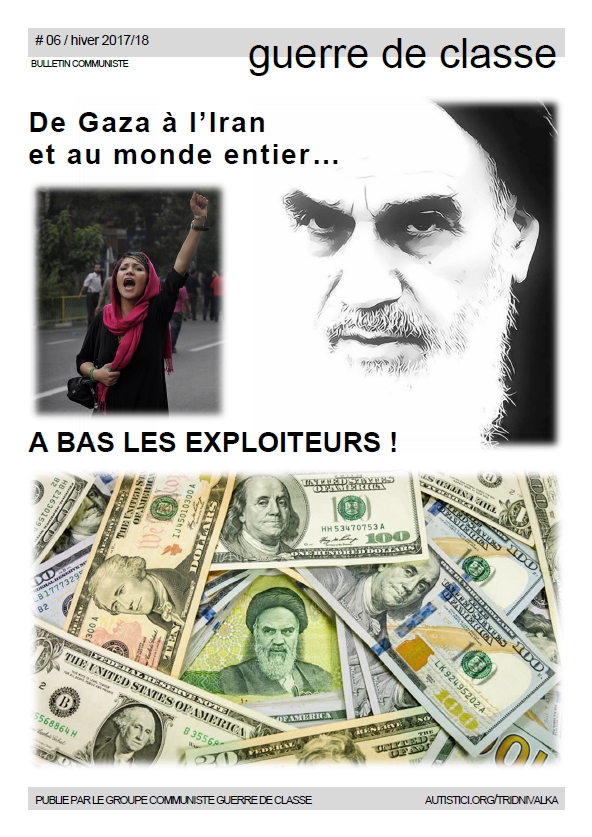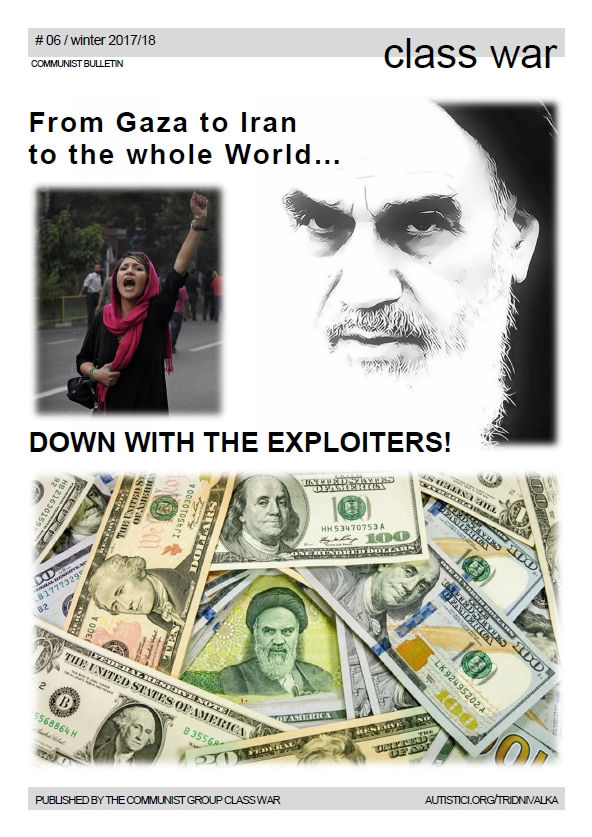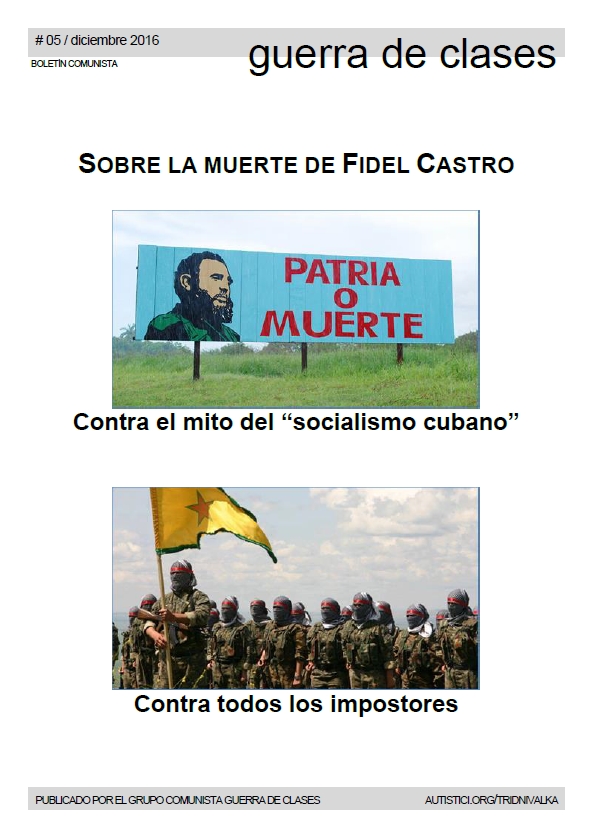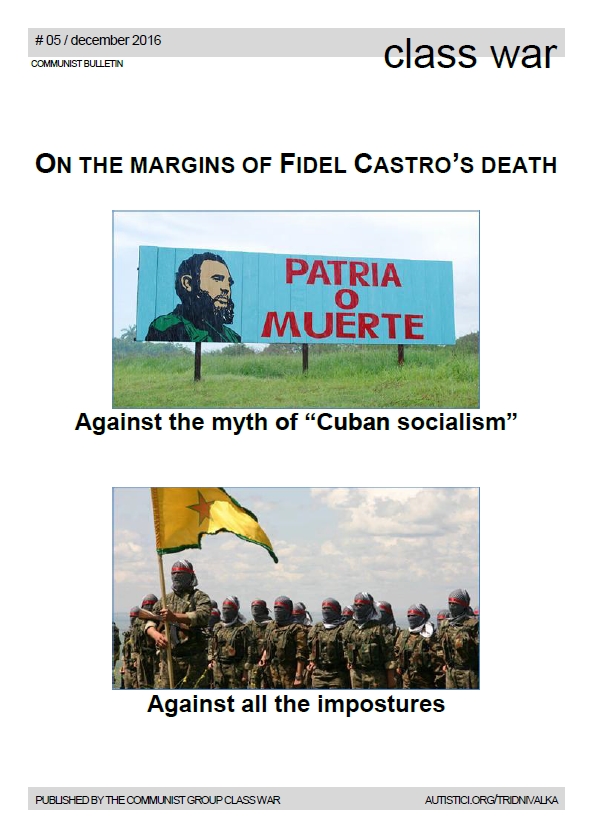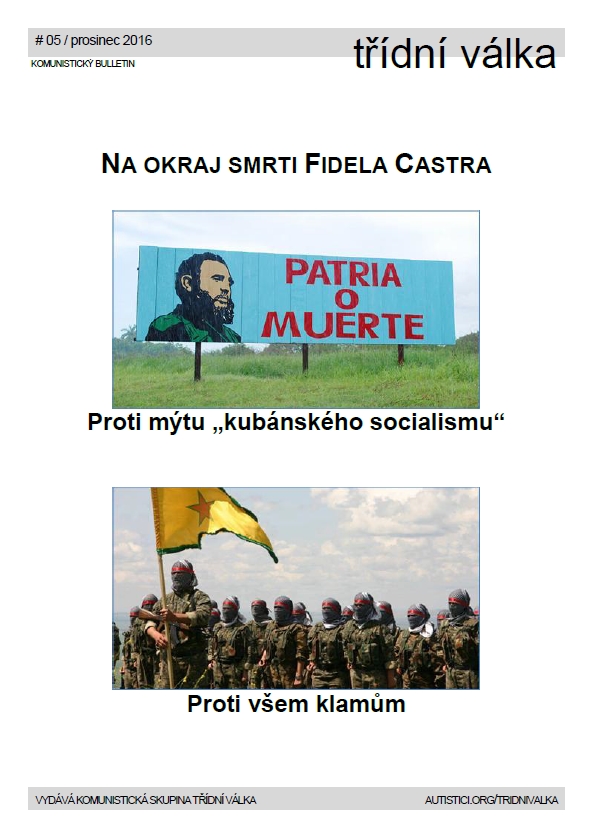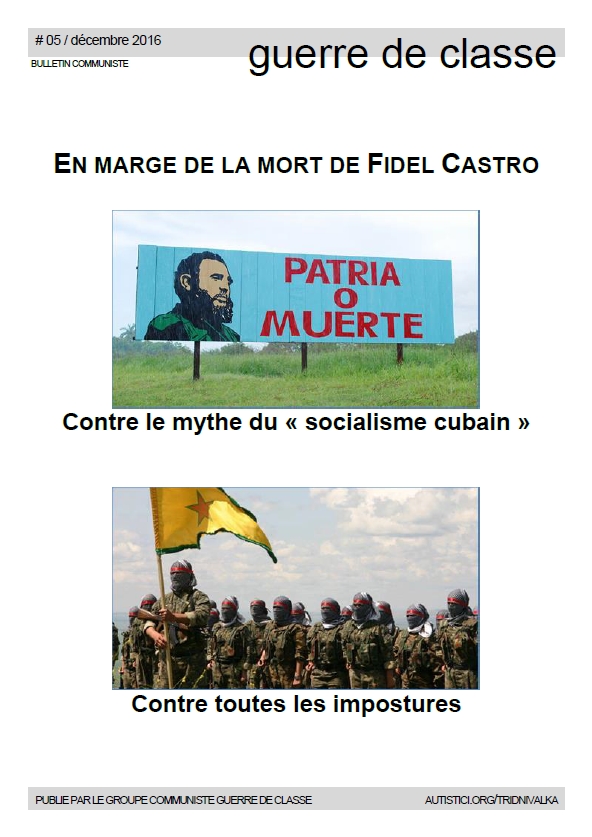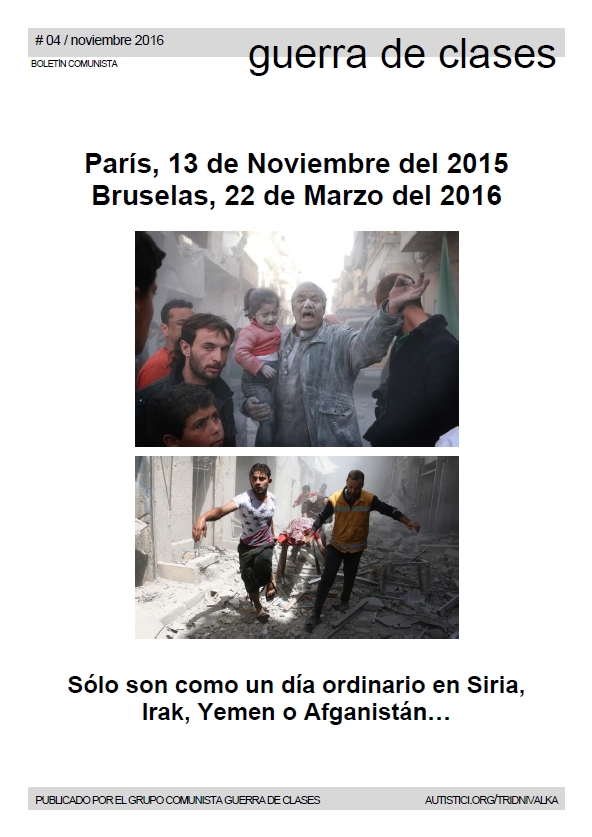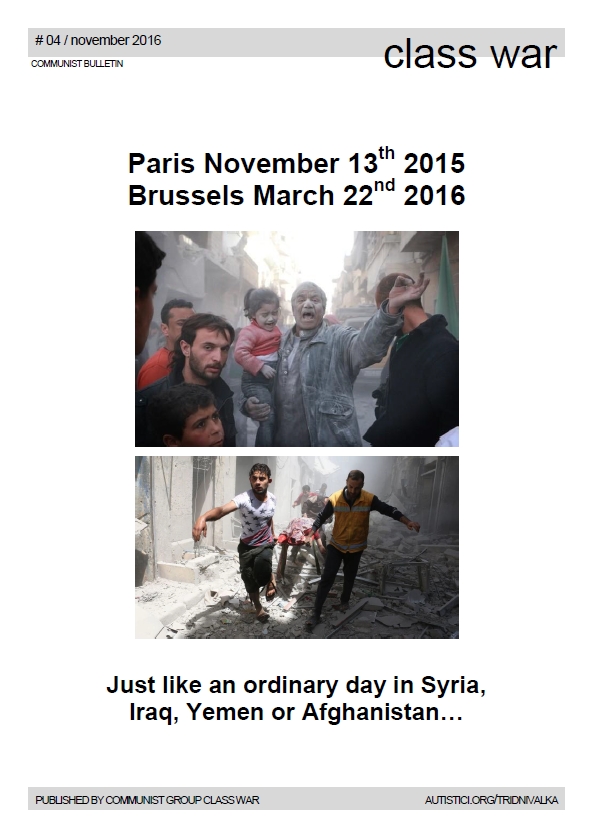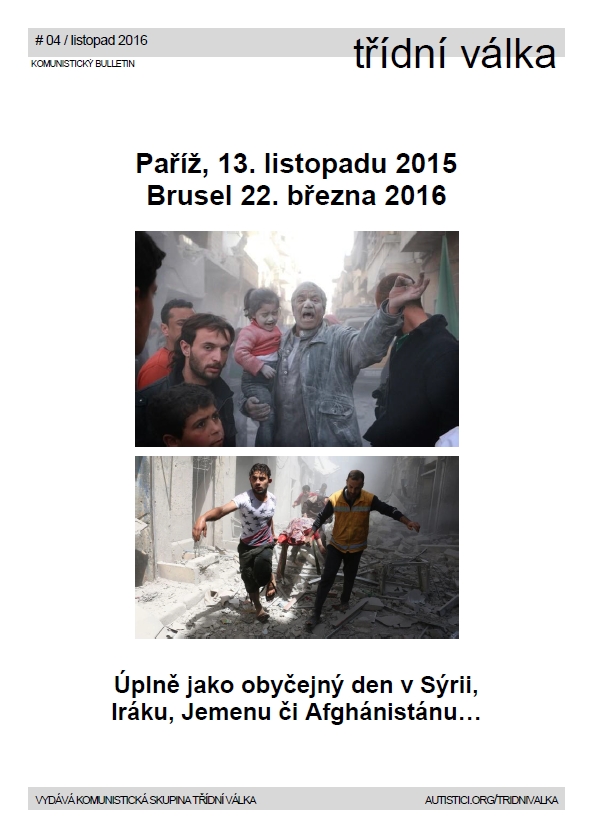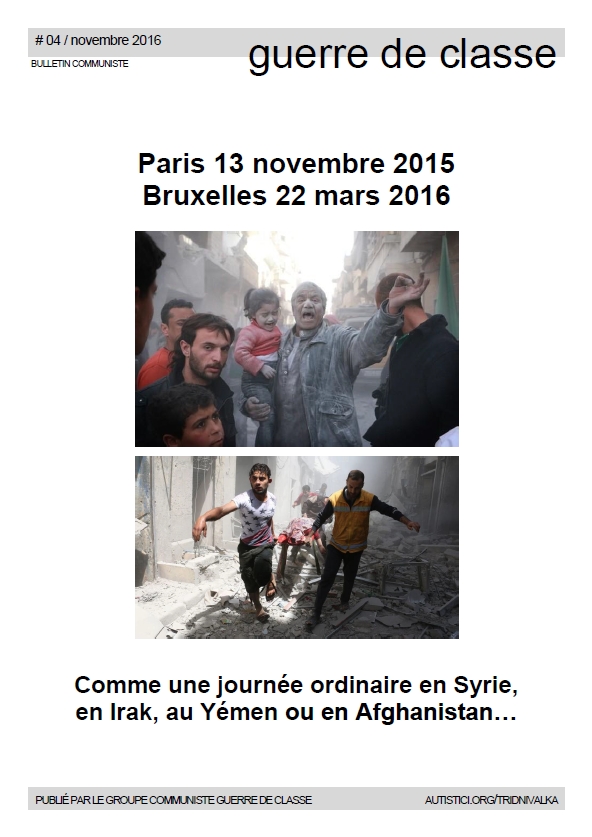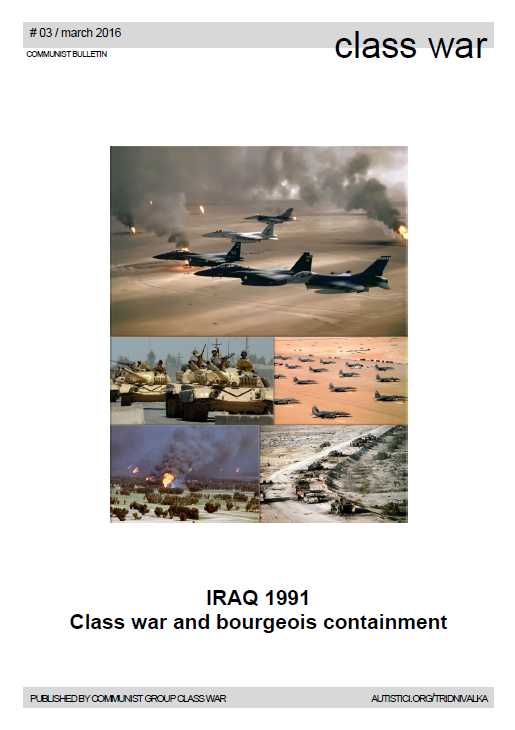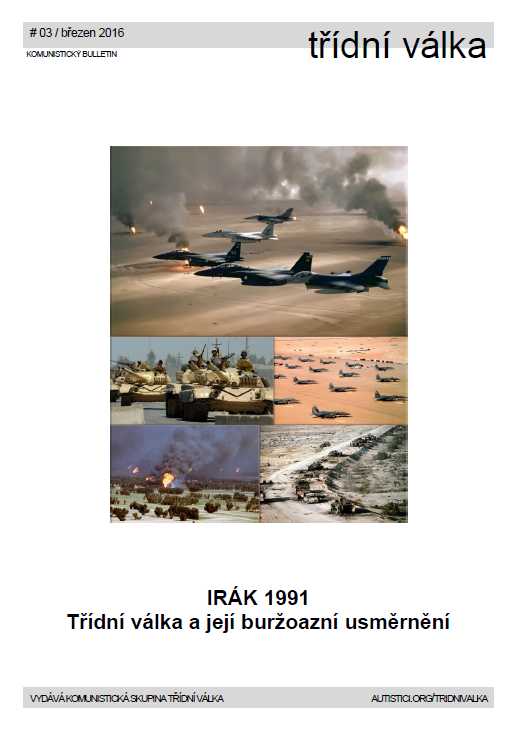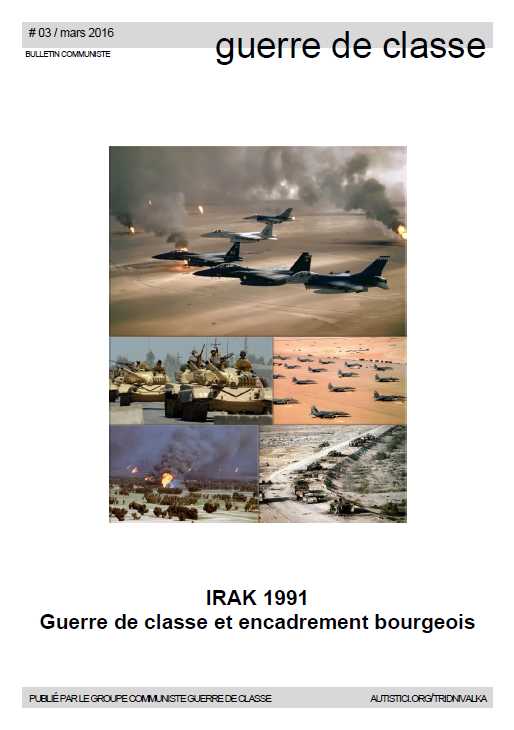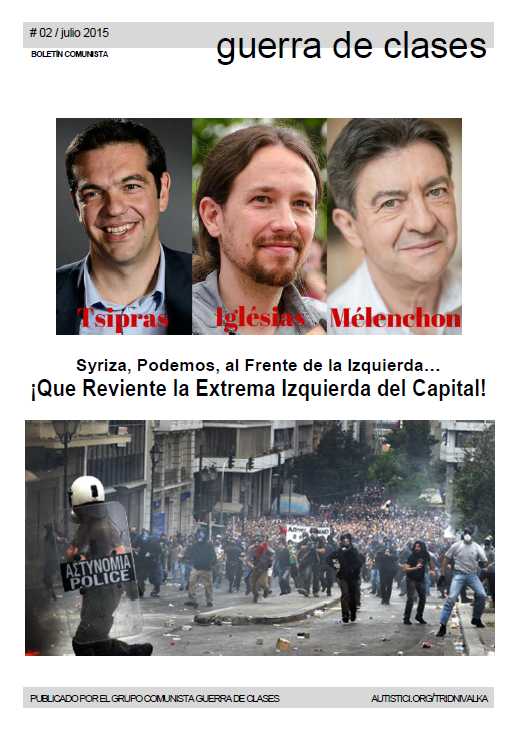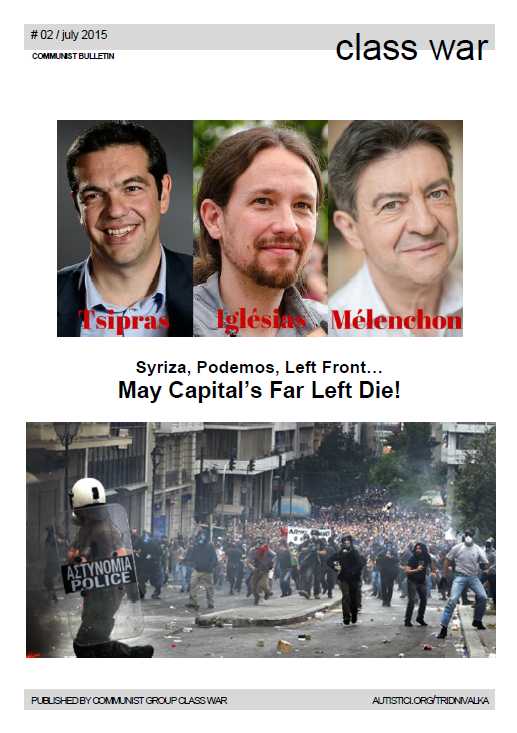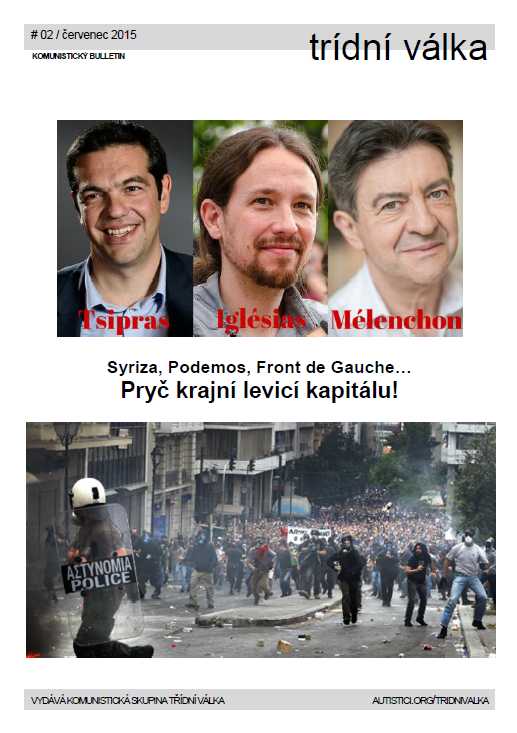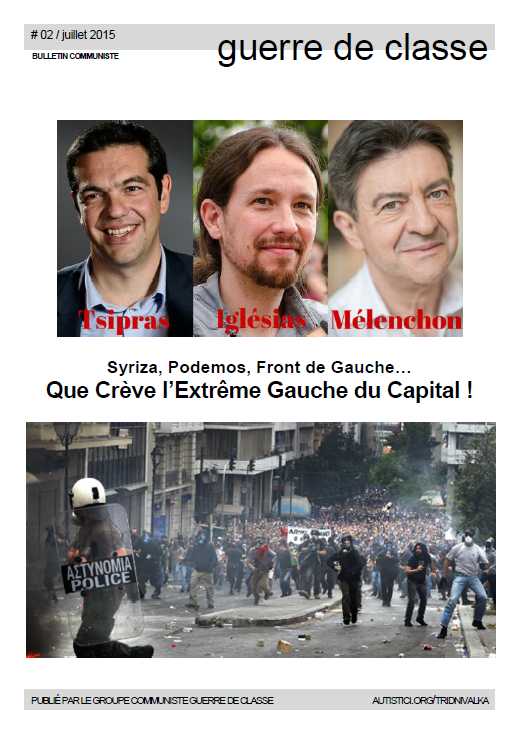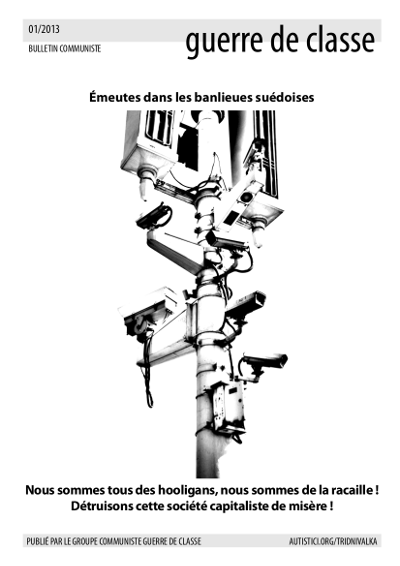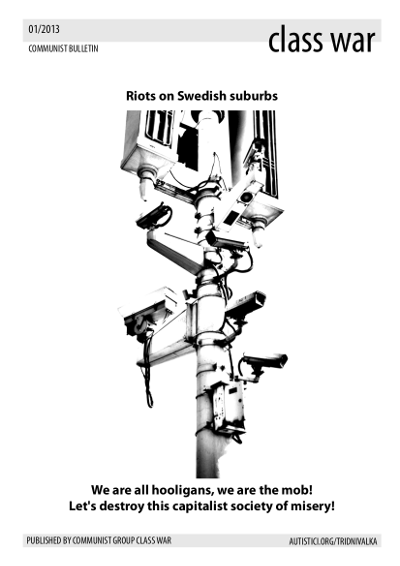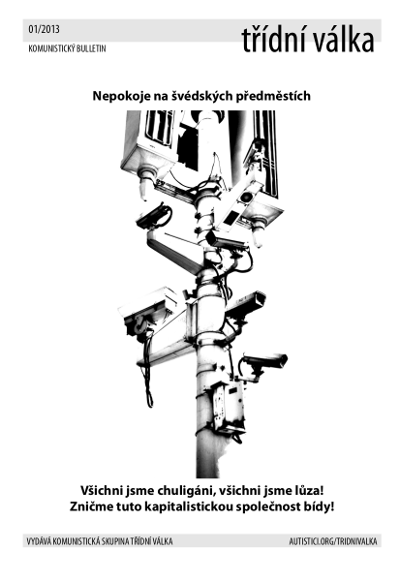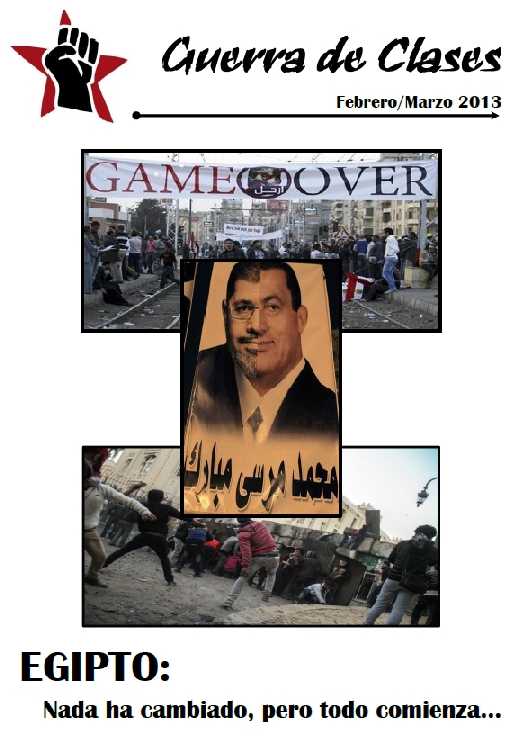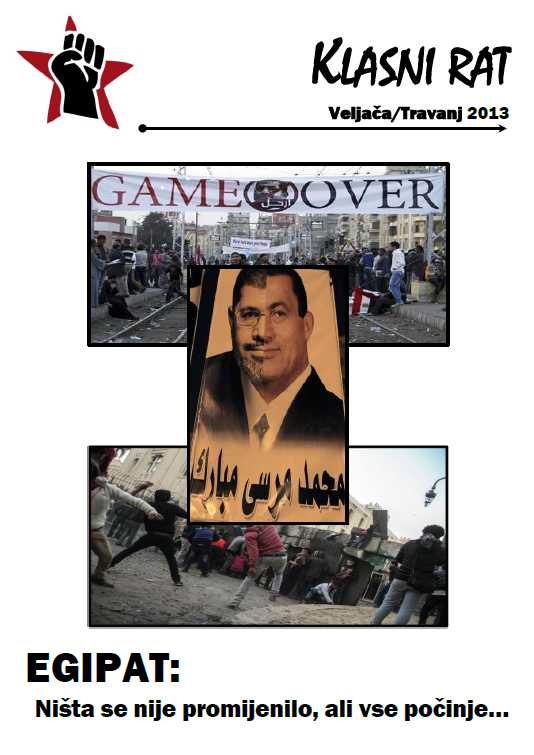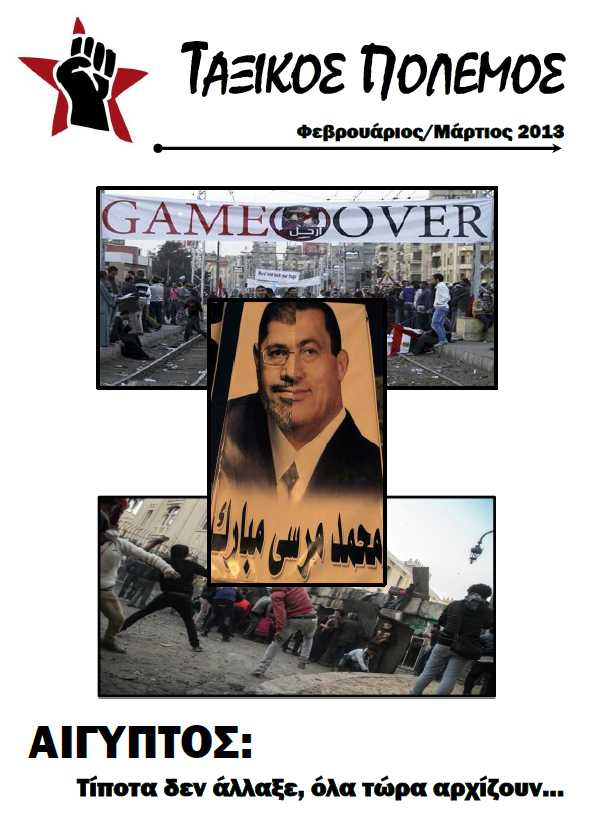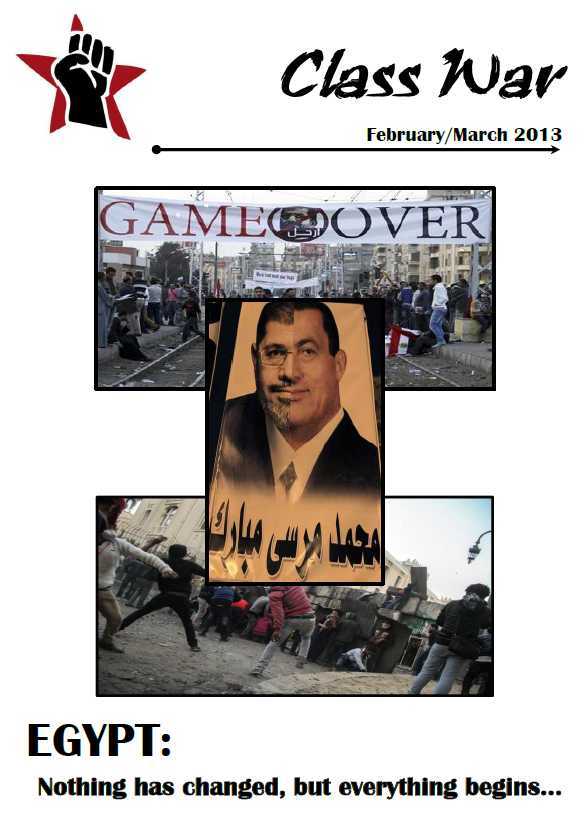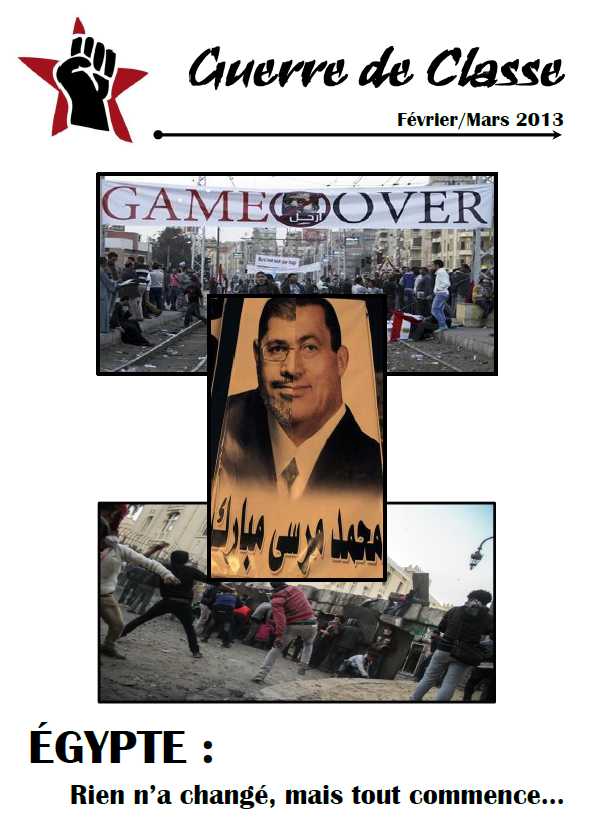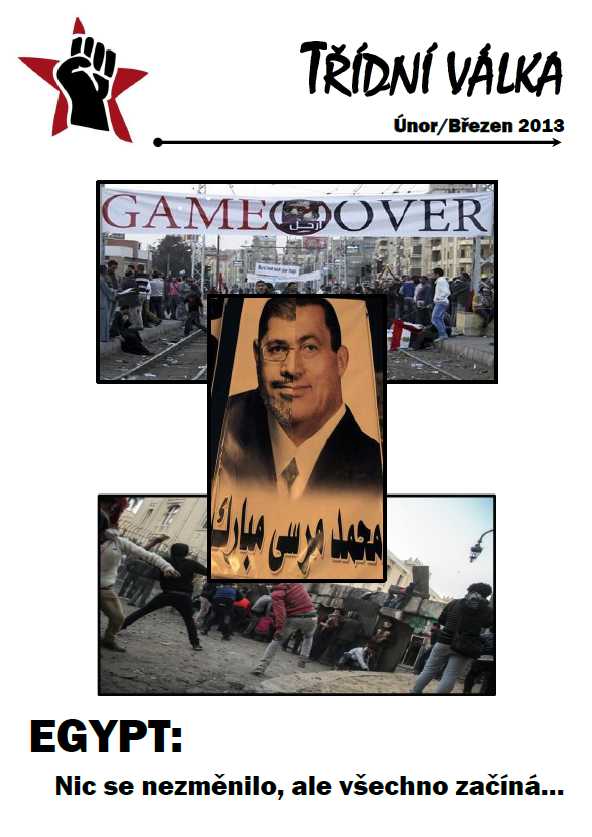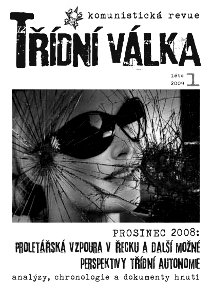 | Čeština | English | Français | Español |
| Čeština | English | Français | Español |
Following our previous critical contribution to “solidarity campaign” towards “Rojava Revolution” entitled “In Rojava: People’s War is not Class War”, we introduce and publish here two small stands we found on the internet. Both of them go in the same direction not to end the debate but on the contrary to bring some class analysis elements in the discussion and to call thus into question the romantic apology of the struggle in Syrian Kurdistan made by different political circles.
We obviously insist on putting forward strong reservations as for weaknesses and limits that can be found in these both texts which represent neither the global positions of our group nor those of the communist movement from a historic and programmatic point of view. Nevertheless these are living expressions of revolutionary minorities that try to affirm against the current and in an “unpopular” way the necessity and pre-eminence of internationalism in all struggle of our class.
The first text is entitled “Rojava: Fantasies and Realities”; it is signed by a militant called Zafer Onat and has been published in Turkish on the blog of the “libertarian communist discussion forum” Servet Düşmanı which means “Enemy of Wealth”.
The second text is entitled “Some Comments on the ‘Rojava Revolution’”; it is anonymous and has been published on the blog Infoshop News – Anarchist and libertarian news, opinion and analysis. We introduce and publish both of these texts on our blog in their English version but we also translated them into Czech and French…
# # #
Rojava: Fantasies and Realities
by Zafer Onat
published on Servet Düşmanı [Ennemy of Wealth] – November 1st 2014
The Kobane resistance that has passed its 45th day as of now has caused the attention of revolutionaries all over the world to turn to Rojava. As a result of the work carried out by Revolutionary Anarchist Action, anarchist comrades from many parts of the world have sent messages of solidarity to the Kobane resistance. This internationalist stance without a doubt carries great importance for the people resisting in Kobane. However if we do not analyze what is happening in all its truth and if we romanticize instead, our dreams will turn to disappointment in short order.
Furthermore, in order to create the worldwide revolutionary alternative that is urgently needed, we must be cool-headed and realistic, and we have to make correct assessments. On this point let us mention in passing that these solidarity messages that have been sent on the occasion of the Kobane resistance demonstrate the urgency of the task of creating an international association where revolutionary anarchists and libertarian communists can discuss local and global issues and be in solidarity during struggles. We have felt the lack of such an international during the last four years when many social upheavals took place in many parts of the world – we at least felt this need during the uprising that took place in June 2013 in Turkey.
Today however we must discuss Rojava without illusions and base our analyses on the right axis. It is not very easy for a person to evaluate the developments that happen within the time frame they live in according only to what they see in that moment. Evidently, assessments made with minds clouded with feelings of being cornered and despair make it even harder for us to produce healthy answers.
Nowhere on the world today exists an effective revolutionary movement in our sense of the term or a strong class movement that can be a precursor of such a movement. The struggles that do emerge fade either through being violently repressed or by being drawn in to the system. It seems that because of this, just as in the case of an important part of Marxists and anarchists in Turkey, revolutionary organizations and individuals in various parts of the world are imbuing a meaning to the structure that has emerged in Rojava that is beyond its reality. Before all else, it is unfair for us to load the burden of our failure to create a revolutionary alternative in places we live and the fact that social opposition is largely co-opted in to the system on to the shoulders of the persons struggling in Rojava. That Rojava, where the economy is to a large extent agricultural, and is surrounded by imperialist blocs led on the one hand by Russia and on the other hand by the USA, repressive, reactionary and collaborator regimes in the area and brutal jihadist organizations like ISIS which have thrived in this environment. In that sense, it is equally problematic to attribute a mission to Rojava that is beyond what it is or what it can be or to blame those people engaged in a life and death struggle for expecting support from Coalition forces or not carrying out “a revolution to our liking”.
First of all we must identify that the Rojava process has progressive features such as an important leap in the direction of women’s liberation, that a secular, pro-social justice, pluralist democratic structure is attempted to be constructed and that other ethnic and religious groups are given a part in the administration. However, the fact that the newly emerging structure does not aim at the elimination of private property, that is the abolition of classes, that the tribal system remains and that tribal leaders partake in the administration shows that the aim is not the removal of feudal or capitalist relations of production but is instead in their own words “the construction of a democratic nation”.
We must also remember that the PYD is a part of the political structure led by Abdullah Ocalan for 35 years which aims at national liberation and the political limitations that all nationally oriented movements have apply to the PYD as well. Furthermore, the influence of elements that belong to the ruling class inside of the Kurdish movement is constantly increasing with the “solution process”, especially in Turkey.
On this point, it is helpful to examine the KCK Contract that defines the democratic confederalism that forms the basis of the political system in Rojava. (2) A few points in the introduction written by Ocalan deserve our attention:
“This system is one that takes into account ethnic, religious and class differences on a social basis.” (..) “Three systems of law will apply in Kurdistan: EU law, unitary state law, democratic confederal law.”
In summary, it is stated that class society will remain and there will be a federal political system compatible with the global system and the nation state. In concert with this, article 8 of the Contract, titled “Personal, Political Rights and Freedoms” defends private property and section C of article 10 titled “Basic Responsibilities” defines the constitutional basis of mandatory military service as it states “In the case of a war of legitimate defense, as a requirement of patriotism, there is the responsibility to actively join the defense of the homeland and basic rights and freedoms.” While the Contract states that the aim is not political power, we also understand that the destruction of the state apparatus is also not aimed, meaning the goal is autonomy within existing nation states. When the Contract is viewed in its entirety, the goal that is presented is seen not to be beyond a bourgeois democratic system that is called democratic confederalism. To summarize, while the photos of two women bearing rifles that are frequently spread on social media, one taken in the Spanish Civil War, the other taken in Rojava do correspond to a similarity in the sense of women fighting for their freedoms, it is clear that the persons fighting ISIS in Rojava do not at this point have the same goals and ideals as the workers and poor peasants that fought within the CNT-FAI in order to remove the state and private property altogether. Furthermore, there are serious differences between the two processes in terms of conditions of emergence, the class positions of their subjects, the political lines of those running the process and the strength of the revolutionary movement worldwide.
In this situation, we must neither be surprised by, nor blame the PYD if they are forced to abandon even their current position, in order to found an alliance with regional and global powers to break the ISIS siege. We cannot expect persons struggling in Kobane to abolish the world scale hegemony of capitalism or to resist this hegemony for long. This task can only be realized by a strong worldwide class movement and revolutionary alternative.
Capitalism is in a crisis at the global level and imperialists who are trying to transcend this crisis by exporting war to every corner of the world, together with policies of repressive regimes in the region have turned Syria and Iraq into a living hell. Under conditions where a revolutionary alternative is not in existence, the social uprising that emerged in Ukraine against the pro-Russian and corrupt government resulted in fascist-backed pro-EU forces coming to power and the war between two imperialist camps continues. Racism and fascism is rising fast in European countries. In Turkey, political crises come one after the other and the ethnic and sectarian division in society is deepening. While under these circumstances, Rojava may appear as a lifeline to hold on to, we must consider that beyond the military siege of ISIS, Rojava is also under the political siege of forces like Turkey, Barzani and the Free Syrian Army. As long as Rojava is not backed by a worldwide revolutionary alternative for it to rest upon, it seems that it will not be easy for Rojava to maintain even its current position in the long run.
The path not only to defend Rojava physically and politically and to carry it further lies in creating a class based grounds for organizing and struggle, and a related strong and globally organized revolutionary alternative. The same applies for preventing the atmosphere of ethnic, religious and sectarian conflict that draws the peoples of the region further in by each passing day, and preventing laborers from sliding into right-wing radicalism in the face of capitalism’s world level crisis. Solidarity with Kobane, while important is insufficient. Beyond this, we need to see that discussing what needs to be done to create a revolutionary process, and organizing for this at the international level everywhere we are is imperative not only for those resisting in Kobane but millions of laborers all over the world.
Source: http://servetdusmani.org/rojava-fantasies-and-realities/
# # #
Some Comments on the “Rojava Revolution”
Tuesday, December 30 2014 @ 04:03 PM CST
Recent eyewitness reports from Janet Biehl, David Graeber and others from Rojava confirm two things:
1) The economic revolution there is still rather modest. This is further confirmed by a RojavaReport interview with an economics minister in Rojava who wants any cooperatives to compete with private capital. He also admits that “with the beginning of the revolution … it was even forbidden to break open a cash box”.
2) The feminist revolution has also been modest. Men still predominate both in the streets and workplaces. And, as the PKK website shows, the organisation’s feminist theory derives more from the thoughts of its patriarch, Abdullah Ocalan, than from any independent feminist movement. Furthermore, any empowerment of women derived from joining – or from being forcibly conscripted into – the militia is unlikely to last. As in previous revolutionary wars, it will inevitably be contradicted by the disempowerment of obeying orders, combined with the brutalisation and trauma of war.
Perhaps this modest revolution is better than nothing. But it is hard to see how such a revolution could ever inspire the new Arab Spring that is needed to overthrow both ISIS and their Saudi, Gulf and Turkish backers. The Rojava revolution, with its ‘radical Kurdish identity’ and its bizarre semi-religious cult around Ocalan, will always have limited appeal to Arabs. Only a revolution that clearly offers the prospect of communising ALL the private and state capital of the Arab world (i.e. the vast oil wealth) could begin to compete with the appeal of Islam.
The PKK/PYD were reluctant to join the anti-Assad uprising in 2012 and are now equally hesitant to overthrow private property. Instead, having allied with Assad’s murderous dictatorship in the past, they are now allying with the US and its murderous bombing campaign. This campaign may have saved Kobane but it has also probably encouraged even more Arabs to distrust the Kurds and to join ISIS. And this is now pushing the region even further into an inter-imperialist bloodbath.
The Rojava delegation never met with the top PKK/PYD politician, Salih Muslim – perhaps because he was busy having a more important meeting with US diplomats. This meeting must have discussed the fact that the PKK/PYD are now trying to work with other more bourgeois Kurdish parties – an arrangement that may have been a condition of further US support.
Evidently, the only hope for the Kurdish proletariat is to overthrow ALL the Kurdish political parties – including the middle-class technocrats of the PKK/PYD. And any such genuine revolution will inevitably require inspiration from proletarian uprisings elsewhere.
Such a scenario may seem impossibly optimistic. But it is probably more realistic than David Graeber’s apparent hope that the capitalist Rojava state and its police will somehow wither away once the people have been trained to police themselves!
Source: http://news.infoshop.org/article.php?story=20141230091831504
